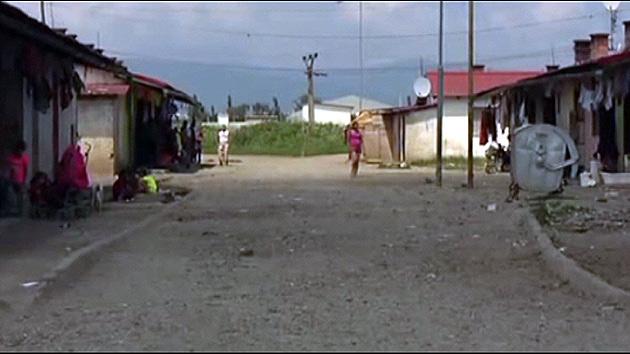Slovak court says school, not state, is responsible for segregating Romani children

According to the Prešov Regional Court in Slovakia, accountability for educating Romani children in segregated settings rests with individual schools, not with the state. Such a decision has been handed down in a case concerning a primary school in the village of Terňa.
The Center for Civil and Human Rights (Poradňa), which brought the lawsuit, has now appealed this second-instance decision. “Through our antidiscrimination public action we objected to the fact that, as a consequence of decisions made about the design of the school district, and as a consequence of the inaction of the state bodies that are responsible for oversight, a primary school in the village of Terňa is segregating Romani children. The Public Defender of Rights was also involved in bringing the lawsuit,” said Štefan Ivanco, the organization’s program coordinator.
The aim of those bringing the lawsuit was for the court to require the state bodies sued, i.e., the Education Ministry of the Slovak Republic and the District Authority in Prešov, to adopt effective measures to eliminate the state of unlawfulness at the school and to prevent segregation in future. The Regional Court’s decision has upheld a February judgement from a District Court that rejected the lawsuit.
According to the first-instance ruling, the state administration is not authorized to intervene in the organization of the process of education, for which the school is the sole authority. According to the court, the segregation of Romani children into separate classes was not a consequence of decisions about the design of the school district.
The court found the state administration “had no choice” but to designate a common school district for the villages of Malý Slivník and Terňa, irrespective of the ethnicity of the schoolaged children living there. The villages are located close to each other in the microregion of Šariš in the District of Prešov and are listed in the Slovak Government’s Atlas of Roma Communities.
“The appeals court, in its decision, did not actually question the fact that it is discriminatory to educate Romani children in a segregated setting, and did not question the fact that state institutions have an obligation to adopt measures to eliminate segregation,” the human rights organization said in a press release. The judgment, according to them, contravenes international law, and for that reason the organization is planning to appeal to the Supreme Court.
“The appeals court, in the decision delivered to Poradňa, has sent the message, in principle, that if you want to address segregation in the schools, you must sue the schools responsible. By doing so, the court has narrowed down the legal interpretation of segregation to mean just the targeted separation of Romani children by schools into separate classrooms. The court ignored the fact that segregation in the schools frequently also results from measures adopted by state institutions or as a consequence of the inaction of state institutions. The institutions being sued in this specific case could have taken into account the available capacities of other schools and, through their decisions, could have designed a school district that would have made it possible for the primary school in Terňa to avoid segregation. I believe the Supreme Court of the Slovak Republic will overturn this decision and, should there be any doubt, will turn to the EU Court of Justice with a request for an analysis of the legal questions at issue in accordance with EU law,” attorney Vanda Durbáková said.
